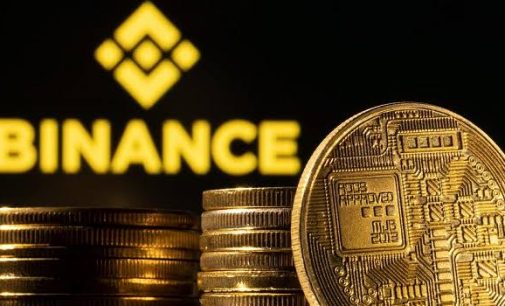A federal high court in Abuja has ordered Binance Holdings Limited to provide the Economic and Financial Crimes Commission (EFCC) with the comprehensive data or information of all persons from Nigeria trading on its platform.
Emeka Nwite, presiding judge, gave the ruling on an ex parte motion moved by Ekele Iheanacho, EFCC’s lawyer, on February 29.
“The applicant’s application dated and filed 29th February 2024, is hereby granted as prayed,” the judge held.
“That an order of this honourable court is hereby made directing the operators of Binance to provide the commission with comprehensive data/information relating to all persons from Nigeria trading on its platform.”
The ex-parte motion, marked: FHC/ABJ/CS/259/2024, was brought pursuant to Sections 6(b), (h), (I), 7(1), (a)(2), and 38 of the Economic and Financial Crimes Establishment Act, 2004 and Section 15 of the Money Laundering (Prevention and Prohibition) Act, 2022 (as amended) and the inherent powers of the court.
In the affidavit in support of the motion, Hamma Bello, an operative of the EFCC, said following the inauguration of the Technical Committee on Currency Stability and Forex Manipulation by the ONSA, the special investigation team (SIT) “received an intelligence stating the nefarious activities (money laundering and terrorism financing) on Binance, a cryptocurrency exchange platform”.
“That on receipt of the intelligence, the team began investigation by conducting surveillance of the activities of the platform,” Bello said.
“The team uncovered users who have been using the platform for price discovery, confirmation and market manipulation which has caused tremendous distortions in the market, resulting in the Naira losing its value against other currencies.
“The damage the platform has caused was clearly explained to the operators of the platform and they were requested to delist the Naira and avail the ONSA on the activities of the Nigerians on their platform.
“The information afforded to the team by Binance shows that the total trading volume from Nigeria in 2023 alone stood at $21.6 (twenty-one billion, six hundred million dollars).
“Attached and marked as Exhibit EFCC 1 is a copy of the document from Binance to the ONSA stating this fact amongst others.
“That the commission will ensure that investigation is conducted within such reasonable time.”
Bello stated that the information would help the panel with its investigation, and that the subject was of the utmost urgent public interest.
He claimed that granting the application was in the interest of justice because rejecting the request would seriously impede the commission’s inquiry.
BACKGROUND
In February 2024, Bayo Onanuga, special adviser to President Bola Tinubu on information and strategy, said Binance and other crypto platforms should be banned from operating in Nigeria.
Onanuga had accused Binance of “blatantly setting exchange rate for Nigeria,” and hijacking the role of the Central Bank of Nigeria (CBN).
On February 27, Olayemi Cardoso, governor of the CBN, said $26 billoon passed through Binance from unidentified sources.
Cardoso said the apex bank was collaborating with the Securities and Exchange Commission (SEC) and security agencies to ensure there is no manipulation in the foreign exchange (FX) market.
On March 8, the crypto firm discontinued all transactions in naira on its exchange platform, following reports that the government demanded $10 billion as retribution for profiting from “its illegal transactions” in Nigeria.
Meanwhile, two of Binance’s top executives – Nadeem Anjarwalla, 37-year-old British-Kenyan and Binance’s regional manager for Africa; and Tigran Gambaryan, 39-year-old US citizen and Binance’s head of financial crime compliance — have been detained by the Nigerian authorities for weeks.




